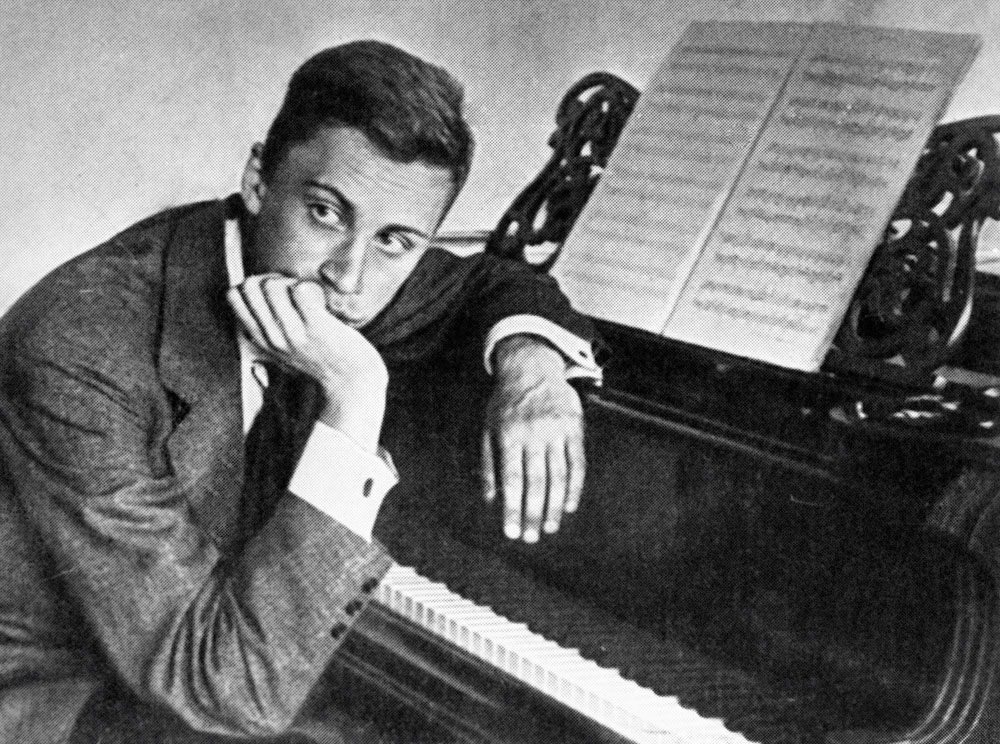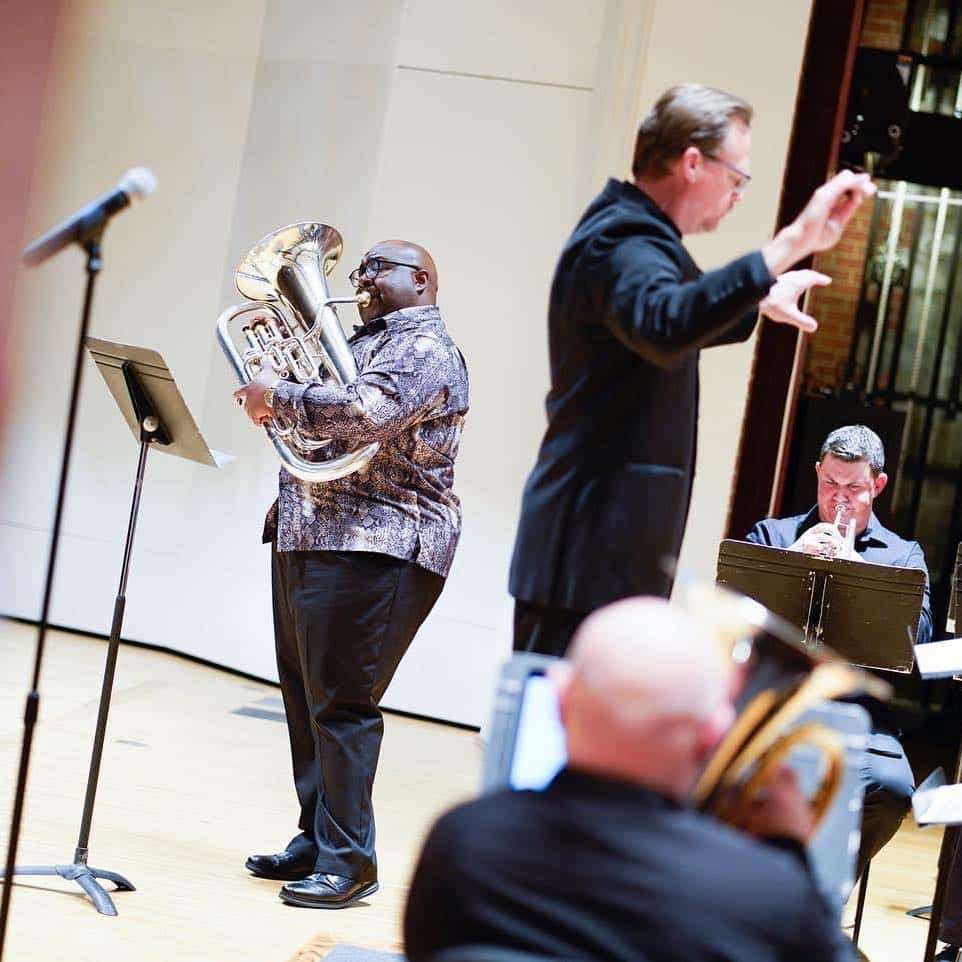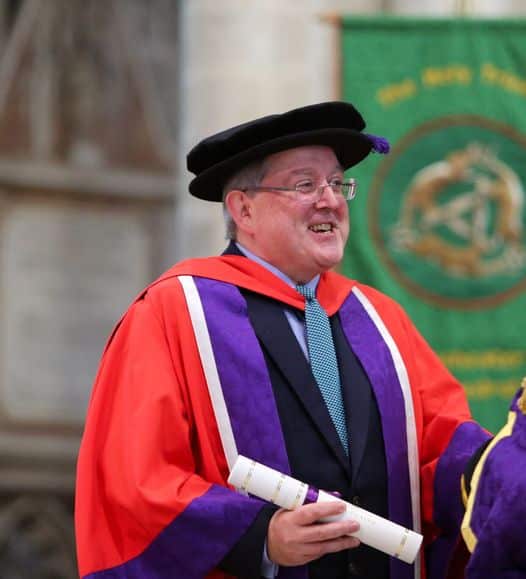Just in: Publisher prohibits use of older Prokofiev scores
NewsOrchestras and ballet companies have been scratching their heads and phoning their lawyers since this missive landed yesterday:
Dear Colleagues,
We are writing to you today with some important information regarding the ballets ROMEO AND JULIET and CINDERELLA, composed by Sergei Prokofiev. These dramatic stage works, having been conceptualized and created collaboratively by their composer and librettists, are co-authored and receive copyright protection as “joint works,” as do the derivative compositions created from the complete ballets.
Both ballets, their derivative concert suites and excerpts, received protection under the Uruguay Round Agreements Act (URAA), and are therefore protected in the United States for a period of 95 years from their initial publication dates. In other territories, the works are protected for the applicable term afforded to copyrighted works; joint works being protected based on the death date of the last surviving co-author. (Please refer to the information below as concerns such relevant dates.)
While your organization may own a legally purchased set of score and parts of an earlier edition of these works, we are obliged to inform you that G. Schirmer, Inc., and the Wise Music Group have prepared new performance editions of both ballets as well as their derivative works. These new editions of full scores and instrumental parts are the only editions authorized by the Prokofiev Estate and must be used for all future performances.
For staged performances of these ballets, the licensing of public performance Grand Rights remains mandatory for performances which take place with either live musicians and/or with recorded accompaniment.
- When performing these works with live accompaniment a rental agreement must be obtained in addition to a public performance “Grand Rights” license.
- When performing with only recorded accompaniment, a public performance “Grand Rights” license must be obtained.
Please know that the right to perform any work in public is within the exclusive province of the composer in the first instance. Sergei Prokofiev assigned the public performance right to G. Schirmer within its territory, with a reservation of the right of absolute approval over the edition that is used to perform the work publicly. The Kalmus edition, and any other unofficial performance materials made available prior to restoration of copyright under the URAA have no such approval and their use to perform the works publicly is unauthorized.
ASCAP, as the assignee of the public performance right from G. Schirmer, can have no greater rights than the rights that Prokofiev gave to G. Schirmer. Therefore, the public performance licenses from ASCAP to orchestras, ballet companies, venues, and festivals are valid only for public performances using the edition approved by Prokofiev and licensed for performance to ASCAP by G. Schirmer as Prokofiev’s assignee. Grand Rights licenses will not be issued for live performances which do not utilize the new editions, and ASCAP licenses for non-dramatic performances shall not be valid when unauthorized performance materials are used.
Wise Music Group reserves the right to retroactively license and invoice unreported performances which are discovered. Such performances shall be subject to penalty fees.
ROMEO AND JULIET:
BALLET IN 4 ACTS, OP. 64 (1935-36)
Composed by Sergei Prokofiev
Co-Authors:
Librettist – Sergei Radlov (1892-1958)
Librettist – Adrian Piotrovsky (1898-1938)
Librettist – Leonid Lavrovsky (1905-1967)
wisemusicclassical.com/work/31702/Romeo-and-Juliet–Sergei-Prokofiev
CINDERELLA:
BALLET IN 3 ACTS, OP. 87 (1940-44)
Composed by Sergei Prokofiev
Co-Author:
Librettist – Nicolas Volkov (d. 1965)
wisemusicclassical.com/work/31718/Cinderella–Sergei-Prokofiev
For information about rental material and licensing of public performance rights, please direct enquiries to the Rental/Licensing Department or agent of Wise Music in your territory.
wisemusicclassical.com/rental
wisemusicclassical.com/licensing
For additional information and to view online perusal scores, please visit the URLs of the works’ pages on the Wise Music Classical website as noted above. We look forward to assisting you with licensing your future productions and concert performances of these ballets.






I guess there is nothing new about copyright holders asserting control over (and efforts to monetize) their works. But what has changed recently? There’s no new copyright law – the Uruguay Round Agreements Act dates from 1994. But the preparation of “new performance editions” looks like a cynical ploy to squeeze orchestras/ballet companies for more money. OTOH, if you’re putting on a show and paying all the performers, it seems fair to pay for the music.
It would be very hard, up to almost impossible, to pay Prokofiev for his music now.
It’s not at all impossible to pay his legal heirs, or those of the librettists.
Please elucidate, who is the librettist for the ballets Romeo and Juliet, and Cinderella?
There are four of them listed right in the article above…
Then it’s time to prepare a new “libretto” to go with Prokofiev’s old music.
A perfect demonstration of the need to overhaul copyright law.
Prokofiev and the co-authors were all dead by 1967. The work should belong to the public.
Not in the least! Composers own their creations, and so do their heirs. “Nothing belongs to the public.” That attitude has destroyed classical music publishing, which harms music education, and composers who can no longer get published at all. Publishers provide vital editorial, marketing, and legal services. They are a vital necessity. The advent of IMSLP.org destroyed their income from older editions, which supported the publication of new music. I would not blame a composer for burning all of his music rather than let it be distributed for free to people who did not earn it.
Something tells me this ain’t gonna age well for Schirmer.
Can’t wait to see how much this backfires on them.
As somebody who has sat on a couple of orchestra boards, I can tell you that what will happen at the regional level is that anybody who had been planning on doing either of these works will change their plans and do something else. Top tier orchestras have deep enough pockets that it likely won’t matter, but all they’re doing is alienating organizations who are already strapped for money.
No. It’s part of their budget. They already use licensed music, even when public domain music is available.
It appears that G. Schirmer and Wise Music are showing themselves as pair of unmitigated greedy bastards, seeking to mine the value of Prokofiev’s masterpieces without adding any value whatsoever. I’ll bet that the composer would have some “choice words” to share directly with these “pencil-necked” corporate types putting a roadblock between this great music and the public. It’s not exactly like organizations who have long ago bought and paid for these scores have the excess funds to line the pockets of these weasley parasites.
I imagine Schirmer is trying to replace the ridiculouly expensive fees it is now unable to charge for Turandot, which is now in the public domain.
This is becoming an increasingly common stunt with publishers. The reason they’re doing this is that Prokofiev’s works entered the public domain in the EU on January 1. His 70 years were up so most works were released from copyright jail. As for the ‘librettists’ they’re making the claim on: The originals of both Romeo & Juliet (Shakespeare) and Cinderealla (Ancient, retold by Perrault, who died in 1723) are quite free, so it really boils down to what, if anything, of an original nature was added by these librettists. The EU countries by and large have a very low threshold of originality, so they might have their victims in such places.
The USA has (by far) the most convoluted and byzantine copyright law on the planet. The smart-boys at Wise probably think that it’s life-plus-70 there too. It is, but only for works first published in 1978 or later. Thanks to GATT and Sonny Bono, the term for works published before then is 95 years from first publication. All of P’s work published in 1928 and before are now free in the USA. Death dates mean absolutely nothing for pre-1978 issues. It’s extremely unlikely that the “librettos” they’re standing on would be copyrightable at all due to the high threshold of originality established in the US by Feist v. Rural. That’s kind of moot though because P.’s music for those two works is still protected for a long time thanks to GATT and Bono.
I’ll say it again: Cinderella is much superior to Romeo and Juliet.
The latter’s popularity stems from having much better suites than the former, therefore being better known and more often performed. But if you dig beneath this superficial layer, Cinderella’s quality is immediately apparent. See for instance Gergiev’s superb custom-made suite he performed with the Berliner Philarmoniker in 2018 if you need a starting point, or Rozhdestvensky’s recording of the complete ballet if you want the full experience.
Last time here, Cinderella detractors claimed Romeo and Juliet has many more memorable tunes. Name one outside of the beginning and end of suite 2?
These people are stuck to the stereotypical vision of Prokofiev as somebody who can only compose motoric, sarcastic music. They forget Prokofiev is a direct heir to Tchaikovsky in the same way Stravinsky is one to Rimsky-Korsakov. They are the same people who dislike the 7th Symphony, again because it doesn’t fit their stereotype (the 7th was by the way Shostakovich’s favorite symphony by any composer, ever)
I would be curious to know how much copyright money is requested for a performance of R&J
However, this is story is as old as the copyright itself. Stravinsky did produce “new versions” of several work to be able to harvest copyrights…
How can Leonid Lavrovsky be registered as a co-author of R&J suites 1 and 2 (premiered in 1936 and 1937), if he became involved with R&J as the choreographer of the 1940 Kirov production?
Hmm why on earth would these new “authorised” editions be appearing now? Oh because Prokofiev died in 1953 and will be out of copyright for 99% of the world this year.
Do ballets have librettists?
I was wondering about that, too. These stories already existed, but I guess someone has to fashion the ballet storyline. Still, if you’re doing a concert performance of the score or one of the suites, how is the librettist relevant?
Yes, they do. I have written librettos for ballets. Many or most or all of Diaghilev’s ballet productions had librettos.
Forgive my ignorance, but for R&J I thought William Shakespeare was the librettist. What did those other people do to earn that title?
The good news: these marvelous scores have been given a modern upgrade with new engravings. The symphonies got the same treatment and it’s about time.
Sounds like Paul McCartney renewing Beatles copyrights endlessly, by adding new material to create “new” albums. Greedy.
Does anyone know how these new versions of the scores compare to the old ones?
In general for Prokofiev, the old Kalmuses (like old Durands for Ravel) may have the odd misprint, but I can promise you that the differences between those (plus the aging Soviet editions) and any new modern edition (Henle and Sikorski are also good) will be so slight that only a performer who has learned the music and is intimately familiar with all the copies could possibly detect any of these very rare occurrences. Basically, any recordings of Prokofiev’s music from the past century are with old editions, with absolutely no harm to Prokofiev’s intentions.
I have various old editions of Prokofiev works, Sonatas, collections, Concertos, and so forth, and they are more than fine. Sometimes the bindings of certain new editions lay open better on the piano and look nicer but that’s it.
Romeo and Juliet, at least, is not an improvement. Editing is slipshod, likely in a rush to get things done before copyright expired.
That’s exactly what I was afraid would happen! It’s not the first time a new edition causes a whole new round of text problems.
Publisher are very scrupulous, they know their customers, and they edit works very carefully, and they may be correcting discrepancies between the first editions and the composers’ manuscripts. They even hire musicologists to be editors! Most of the comments here are very ignorant about music pubishing. In any case, we desperately need music publishers, and need them to survive and be able to have qualified staff members. As it is, Hal Leonard has a nearly total monopoly on the publication of sheet music and is utterly ignoring their responsibility to publish music needed for study and performance.
The new versions will presumably include the names of the librettists, and should also include their copyright-protected libretti. That seems to be the whole point of this exercise in overreach. One wonders how much money has been distributed to the librettists and their heirs for the past 85 years whenever the ballets or the suites were performed. One wonders how the Prokofiev estate and Wise Classical might respond if the librettist’s estates made claims to their share of 85 years of rental and licensing fees that have been collected for orchestral performances without dancers. By opening this door, the Prokofiev estate and Wise Classical have opened others that may not be to their benefit.
Tell the publishers to stick it where the monkey keeps his nuts.
F—ing Lawyers!! This has nothing to do with the composer(s) or co- author(s). This is all about the f—ing lawyers.
That and the fact that Tsar Putin needs to squeeze every possible ruble from the vanishing heritage of Russian-associated culture. Let’s see what he can do with novels from the first half of Nabokov’s career.
Nasty in life, nasty after death. PRKFV
YIP, YIP, YIP. Like Pavlov’s dogs.
Right. Gotcha. We’ll scratch planned performances Prokofiev ballet suites from next season. Plenty of other music available. Schirmer should have told the Prokofiev estate that a move like this will silence Prokofiev’s music more than encourage performances. The assertion that these are joint works is tenuous; didn’t the Ravel estate try something similar with Bolero? I hope there’s litigation with one of the orchestras or ballet companies with deep pockets to clarify, punish, and establish precedent.
I’m reminded of similar overreach in 1998 with the Girl Guides debacle – https://www.nytimes.com/1996/12/17/nyregion/ascap-asks-royalties-from-girl-scouts-and-regrets-it.html
This “news” is about performances in the United States only. These works are in the public domain elsewhere.
This memo from Schirmer is not stating anything new. If you are in the United States, you have always been obligated to rent parts from Schirmer/Wise and pay performance rights fees. Although Schirmer recently created these new editions, they were previously providing the older editions for rental, and orchestras in the US were supposed to be renting from Schirmer. Many orchestras have not been doing this because they owned or had access to materials that were once available for sale, such as the now out-of-print Kalmus edition, but this actually has been illegal. It is also illegal to “create” different suites than the three suites by Prokofiev without the permission from the estate.
Contrary to what others are stating here, this is not coming from Schirmer or lawyers, but this is actually coming from the Prokofiev estate/family. They have requested that their representatives take a stronger stance at protecting the copyright of Sergei’s works in the one country where they still have control: the United States. This is due to the Uruguay Round Agreements Act which, like many of Shostakovich’s works, placed these works back into copyright to bring the US into full alignment with the Berne Convention of 1989.
Again, there’s nothing new here. Schirmer is reminding everyone that these pieces are still under copyright in the US, and you’ve always been required to apply for a license through them. The one interesting line in their memo is a warning that if they find out you’ve done an unauthorized performance, they’ll charge you retroactively and add penalties. That doesn’t seem like a very smart way to stay in the good graces of your customers.
As others have remarked, Prokofiev himself went out of copyright in most territories (including the UK and the EU, both of which tend to follow the “life+70” rule) on 1st January 2024. However, under the same rule, the libretti would still be in copyright, given that at least one of the librettists for both works died after 1953. If the publishers are relying on copyright in the libretto still being in force (because one or more librettists died after 1953), then I suppose the legal question is whether a rightsholder can make the granting of “grand rights” (the category of rights for staged theatre/opera performances which are usually licensed directly on a case by case basis, and *not* via a collective organisation such as the PRS) for a production that is still in copyright **when taken as a whole** conditional upon not using an ‘obsolete’ edition for a facet of the production (i.e.: the notated music) that, taken in isolation, is public domain.
I wonder whether reliance is being placed on moral rights in a work, which would encompass the right to object to “derivative works” and “derogatory” treatment. If so, and one or more librettists’ moral rights are still active, then I suspect the answer is yes (on the basis that the rightsholder feels that the moral rights of the still-in-copyright librettist and the integrity of his/her dramatic conception are harmed by using the ‘obsolete’ edition).
Music publishers are parasites, and increasingly irrelevant. Much like music critics.
Do you enjoy editing and printing, mailing, advertising and selling your music all by yourself? I doubt it. It’s a symbiotic relationship in which both parties should benefit. Nothing at all like critics.
I would like to see documentary proof that Sergei Prokofieff gave the rights to G.Schirmer, which is a lousy edition generally, full of errors (at least in the solo piano works)!
This is their main source of income, since classical music publishers gave up on sheet music sales. I worked at Boosey & Hawkes in 1985-86, and apart from parts rentals fees, licenses and especially grand rights were their major source of income. And grand rights are quite expensive. $500 per performance for Bartok’s Music for Strings, Percussion & Celesta in 1986, as I recall. Bartok was their top-earning composer, followed by Ginastera-primarily for performances of his Harp Concerto, mainly by Heidi Lehwalder, who performed it with every orchestra in North America-and then Leonard Bernstein. Acquiring Bernstein’s entire publishing catalog (Amberson) was a major achievement at the time, and kept them from the poorhouse. As it was, the London office headquarters was riding hard on the New York office to perform and bring in more bacon. And yet, interestingly, the majority stockholder was Carl Fischer, Inc.! To reduce costs, they moved the rental library from Farmingdale, Long Island, to the spacious Carl Fischer building in Manhattan. Steve Reich made money for them, but they were really struggling to find new money-makers. They did nothing to promote sheet-music sales or to mine their massive backlist.